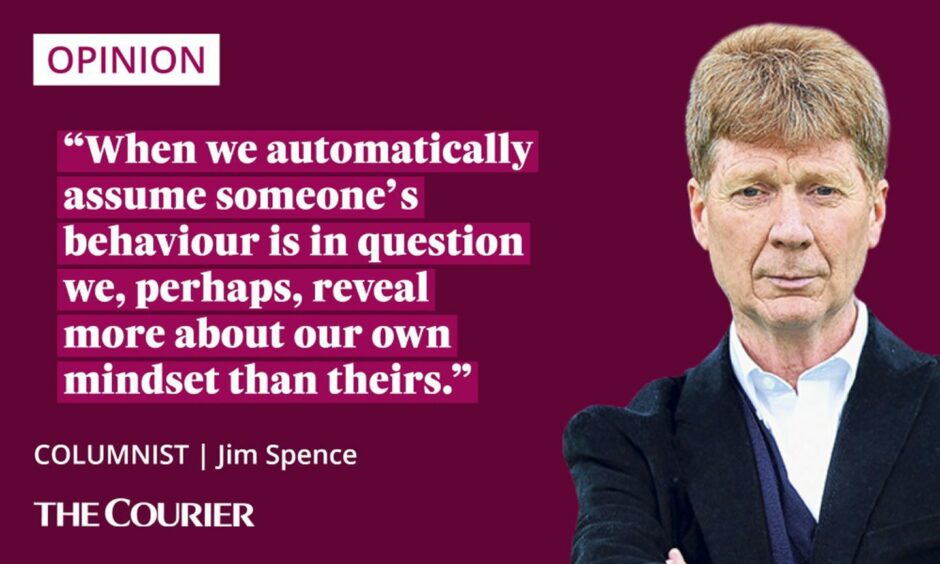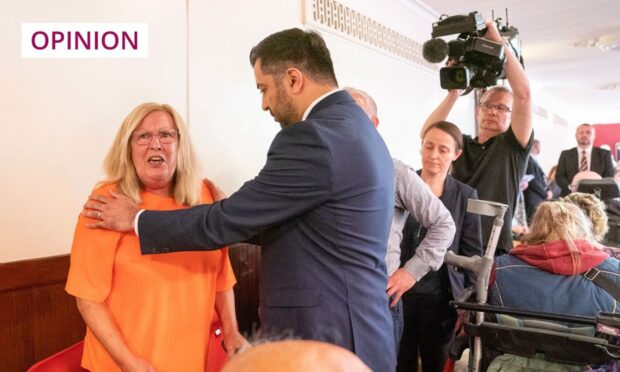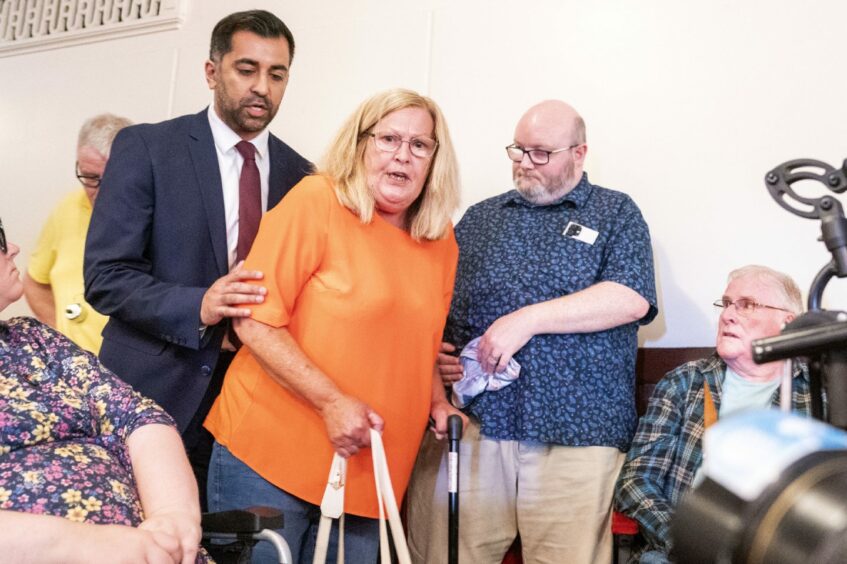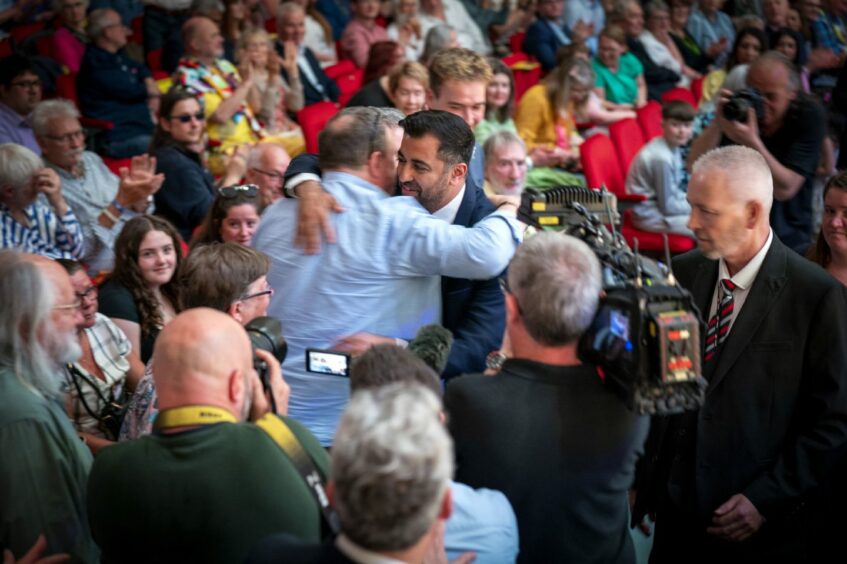Hammering Humza Yousaf for his politics is fair enough. But hoisting the flag of war over the First Minister’s sensitive and compassionate actions at the weekend is simply seeking conflict when peace looked to be his intention.
As he left the Caird Hall stage to speak to Theresa Mallett from Glenrothes on Saturday, Yousaf committed the cardinal sin – in some eyes – of the ‘laying on of hands’.
It came after the Fife grandmother had decided to “go Rambo” in a bid to make the First Minister listen to patients during his speech at the independence event in Dundee.
I’m in complete agreement with her tactics.

This is a woman who has every right to rage publicly at the SNP stance on calls for an investigation into rogue ex-NHS Tayside doctor Sam Eljamel, who has brought pain and misery to her and others.
In going down to speak to her, it looked like Humza Yousaf was trying to defuse the situation and show empathy.
However, the social media pile which followed his actions deflected from her serious story.
It concentrated instead on the issue of the First Minister’s behaviour in reaching out to touch the protester.
And in doing so it overshadowed the grim reality of the situation in which many patients of the dodgy doctor now find themselves.
What really motivated critics of Humza Yousaf’s response to Dundee protest?
The reaction from some folk seemed to involve political point-scoring.
JK Rowling has been a fierce critic of the Scottish Government, including both the First Minister and his predecessor, over their actions on safeguarding women’s rights.
I’m in agreement with her on that.
But with her comments on Twitter I think she saw harm where none was intended.
“He puts his hands on the female protestor, because of course he does,” she tweeted.
“Would he stroke the arm of a male heckler? Would he physically take hold of him? Or would he respect a fellow man’s personal space and physical boundaries when trying to reassert his authority”
No one can read the mind of someone else. All we can do is speculate as to what another’s actions or words mean.
But in this situation I’m giving Humza Yousaf the benefit of the doubt.
And @HumzaYousaf puts his hands on the female protestor, because of course he does. Would he stroke the arm of a male heckler? Would he physically take hold of him? Or would he respect a fellow man's personal space and physical boundaries when trying to reassert his authority? https://t.co/wuYW8RErxa
— J.K. Rowling (@jk_rowling) June 24, 2023
When we start assuming that everyone who touches or embraces someone is asserting their power over that individual, or invading their personal space or boundary, then our view of the world is in danger of becoming mean and narrow, and spiteful and frankly dangerous.
Hugs needn’t have a hidden meaning
Some folk are touchy freely and others are not. This happens across both sexes.
Some men and women are, by nature, the sorts who embrace and hug and touch instinctively. Others aren’t.
Where do we stop with this cynical view of each other’s motives?
Should we refuse the offer of handshakes offered in friendship and camaraderie?
Folk extend physical offers of assistance daily on buses, in airports, in queues and in a hundred other places.
It’s a way of saying: “I see you. I hear you. I’m listening. I’m sympathetic. Can I help?”
The issue here is the automatic assumption that there’s a hidden meaning to such actions, rather than a spontaneous act of friendship, compassion, or just common concern or decency.
When we automatically assume someone’s behaviour is in question we, perhaps, reveal more about our own mindset than theirs.
It’s little wonder that many men don’t know whether they’re coming or going when they are accused of power trips and asserting their patriarchal authority (when the much more innocuous explanation is that they are acting out of common kindness and decency).
Humza’s Yousaf’s politics aren’t everyone’s cup of tea but I think his motives on this occasion seemed sincere.













